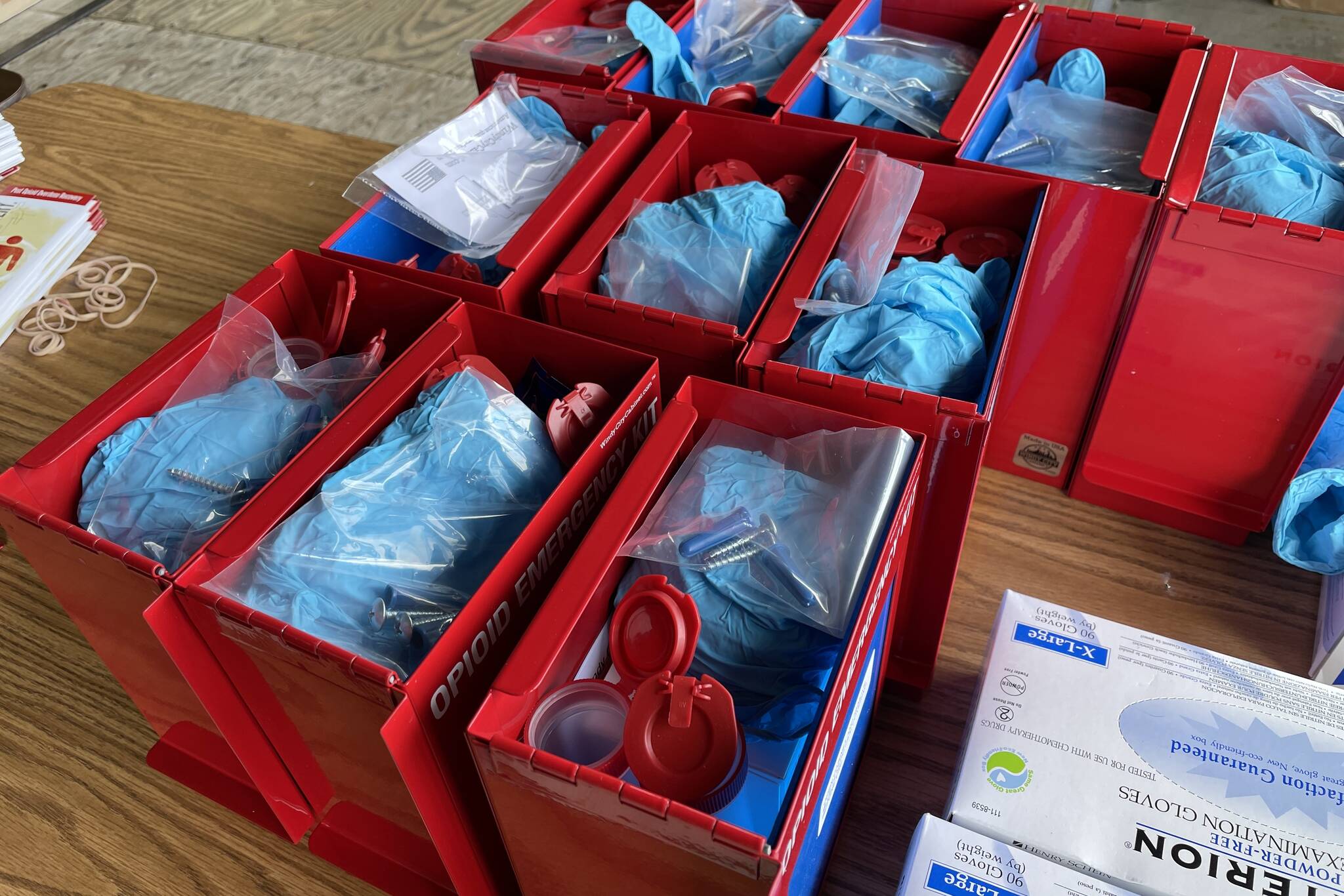Following the loss of her son to an opioid overdose in January, public health nurse Denise Ewing sought to prevent others from suffering the same loss.
Named after her deceased son, Gabe Johnston, Project Gabe seeks to place opioid overdose kits in fisheries and vessels across the Southeast Alaska, aiming to protect the high-risk population from avoidable deaths.
“Gabe, our son, had struggled with opioids for many years,” Ewing said in an interview. “When he passed, we said, ‘We have to stop this. This is stoppable.’”
[Police talk flurry of recent drug busts]
The kits, in high-visibility red boxes, are meant to be placed in standardized locations in fish processing facilities, Ewing said. The aim of the project is to make the kits another regular piece of equipment like automated external defibrillators or CPR masks.
“We’re going to start with seafood, but we hope it grows,” Ewing said. “I think we’re seeing opioids everywhere.”
The project is an offshoot of an existing Alaska Department of Health and Social Services project, Project Hope, which aims to push access to naloxone out to the community. Capital City Fire/Rescue recently joined the project, distributing the nasally administered naloxone to community members in Juneau.
“This project builds on work already being done throughout the state by delivering an important message directly through workplaces to working Alaskans,” said Alaska Chief Medical Officer Dr. Anne Zink. “Naloxone is safe to use and easy to administer. Project Gabe makes it even more accessible as time is critical in an overdose.”
In addition to four nasal spray applicators, the kits in their mountable boxes also contain needle disposal containers, CPR face shields, disposal gloves and instructions for all. Ewing said she started Project Gabe with the seafood industry because she was already working with the industry, and leadership had welcomed the kits.
“We’re trying to expand that work regionally to seafood processors,” said regional Public Health nurse manager Sarah Hargrave in an interview. “Our goal is to have these mounted in standardized places in seafood processors and docks and harbors.”
Project Gabe is also distributing fentanyl test strips, which can be used to determine if fentanyl is present in the drugs being used, Hargrave said. In the Southeast this week, law enforcement has conducted several high-profile drug busts of suspects trafficking primarily counterfeit pills suspected to contain fentanyl.
“Gabe was bright, witty, opinionated, adventurous and full of creative energy. He loved hunting, camping, fishing and being outdoors. He was first introduced to drugs during his teenage years from a friend whose father had been prescribed pain medications,” Ewing said in a news release. ”Unfortunately, Gabe became addicted after one pill, which led to more than 14 years of polysubstance abuse.”
The danger of the fentanyl is its strength, much higher than other opioids, which can lead to fatal overdoses more easily, according to the federal Drug Enforcement Administration.
“The majority of our workforce fits into the highest risk age group for drug overdose deaths — men who are 25-34 years old,” said Bill Grant, plant production manager at Sitka Sound
Seafood, in a news release. “We care about our people and are grateful to have the tools to do something about it in an emergency.”
Volunteers assembled 150 kits for distribution in fisheries in the Southeast. Hargrave said she hopes the project will expand once people see its effectiveness.
“Naloxone can save a life when used right away, and we need to ensure it is widely available in every ship, every processor, every workplace in Alaska,” Zink said. Project Gabe is a critical step in that direction, sadly in memory of a young man gone too soon.”
For those interested in working with Project Gabe, contact the project at projectGabe@alaska.gov.
• Contact reporter Michael S. Lockett at 757-621-1197 or mlockett@juneauempire.com.

